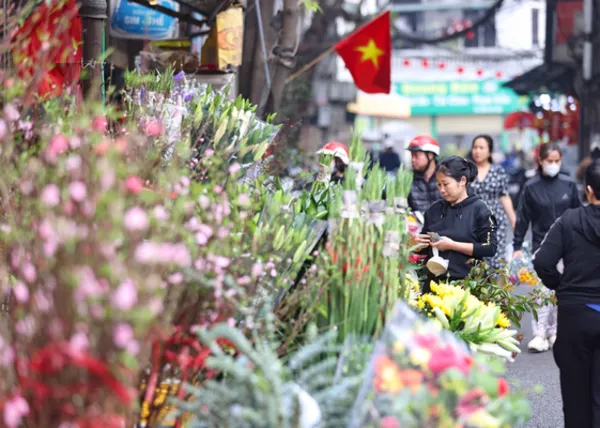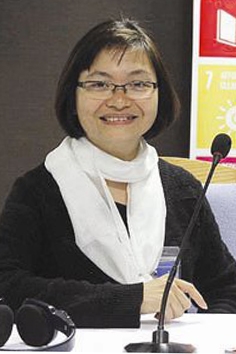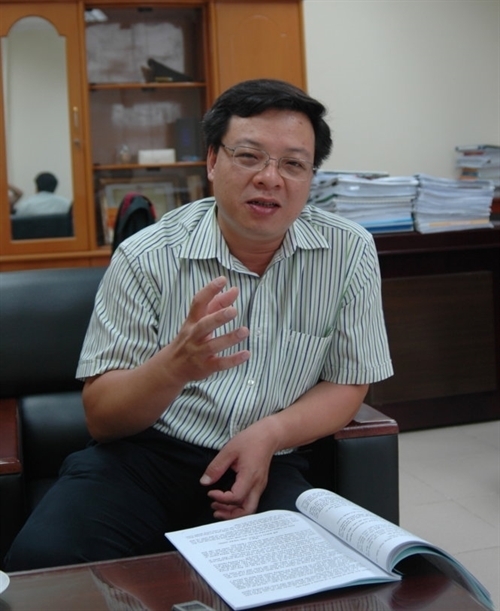 Society
Society

If the State and citizens are not well aware of their responsibilities and obligations, “the tolerance for corruption” by chance will become a prolonged practice.
 |
| Đỗ Thị Thanh Huyền |
Viet Nam NewsĐỗ Thị Thanh Huyền, policy analyst, UNDP Việt Nam
If the State and citizens are not well aware of their responsibilities and obligations, “the tolerance for corruption” by chance will become a prolonged practice. Corruption is something hard to eliminate, but it is controllable, which requires concerted efforts of both the State and citizens. What matters is whether citizens have a full understanding that:
First, they have right to be informed of policies. For example, one should be aware of official fees when it comes to services like land use certificates, healthcare and education. The PAPI reveals that numerous indicators are unknown to citizens, forcing them to follow what they heard from the neighbourhood to “give an envelope” to shorten the time for administrative procedures or to purportedly have better education and medical services.
Second, they have the right to examine and inspect service-supplying bodies. Citizens should know why a house-ownership red book is provided late or there is any implication for money.
Third, they have the right to denunciate corrupt practices. The Penal Code specifies that whenever they are asked for at least VNĐ2 million ($90), they can denounce the act. The right is little known to the general public, so they haven’t taken full advantage of the right to raise concerns with public bodies.
Fourth, they have the right to be protected when reporting corruption. Survey respondents in HCM City said on average they paid a VNĐ14 million slush fund for a house-ownership certificate. Clearly, such amount is not modest, but they do not denunciate the practice because they think that they are not protected. The people should understand that if they expect public officials to abide by the law, they themselves should also obey the law adequately.
Prime Minister Nguyễn Xuân Phúc recently mentioned a “constructive Government for development”, which means individuals and enterprises are fully facilitated to develop without being imposed any power. That is the key.
Authorities must provide information to citizens so they are well aware of all their rights.
 |
| Đào Nga |
Đào Nga, Executive Director of Towards Transparency
The core reason behind ‘citizens’ increased tolerance for corruption’ is that the State’s efforts to prevent and fight against corruption haven’t brought about the desired outcome and the people are becoming increasingly pessimistic about the effects of these efforts.
When the people gradually lose their belief in the ability to control and limit corruption, they are likely to compromise with corrupt acts/phenomena.
Society plays an indispensable role in the fight against corruption. This is maintained in the UNCAC, the Anti-Corruption Law, the National Strategy for Preventing and Combating Corruption Towards 2020 and numerous under-law documents.
In fact, however, barriers still exist, limiting the participation of social entities in the fight against corruption. For instance, the current Anti-Corruption Law focuses primarily on responsibilities rather than conditions ensuring the participation of society. The Law on Denunciation stipulates that people who report corruption must be identified, but falls short of specific and practical measures to protect the denunciator.
The ongoing revision of the Anti-Corruption Law is a chance for Việt Nam to consider and complete the law on anti-corruption in the direction of facilitating the engagement of society.
The revision of the law is also crucial to improve openness and transparency, and reduce corruption in the public sector. Institutions on assets and income declaration should be amended to reduce those subjected to declaration but expand the scope in which declarations are made widely to the public.
 |
| Nguyễn Tuấn Anh |
Nguyễn Tuấn Anh, deputy director of the Government Inspectorate’s Legal Department
Saying “tolerance” seems a bit too serious because it sounds like one is forced to do so, even though under numerous situations in many cases, it is not really so. “Acceptance” seems to be more suitable, as in many cases it stems from our own desire and expectation. If someone helps our family, especially in the event of an accident or illness, we will feel uneasy if we do not have sorts of “gifts” for medical practitioners or helpers. Sometimes, it is hard to find a suitable present, so an envelope sounds adequate.
In many countries, such a practice is considered corruption. Nevertheless, in Việt Nam’s society, we should not have such a strict view, even though the practice should not be encouraged and turned into a normal act either.
The root cause of the “acceptance” stems from both sides. The recipient or provider of public services always thinks that they have the right to enjoy that privilege and consider it normal.
In addition, citizens do not have many choices when it comes to public services, especially basic services, so they are forced to “make a deal”. Furthermore, in many cases, citizens wish to enjoy a higher standard of services (for example, medical treatment and education for their children at places different from designated facilities within their living area).
If we abuse this, social vices will develop. First, socio-economic development targets, particularly targets for social justice, will not be achieved as resources are not allocated due to the “run for soliciting favours”. Second, the gap between rich and poor is increasingly wide since the poor do not have the chance to “give envelopes”, making it hard for them to access resources and basic services. Third, fundamental social elements such as healthcare and education will not be developed based on practical societal demands and will not bring about inherent values for society.
It is essential to continue reforming the management mechanisms of agencies and organisations that provide public services to promote enhanced autonomy and self-responsibility of these bodies.
It is also vital to boost openness and transparency in the organisation and operation of these bodies, carry out regular inspections and increase the accountability of leaders.
Last but not least, the settlement principles of corrupt practices should be defined more clearly in the Anti-Corruption Law. — VNS




